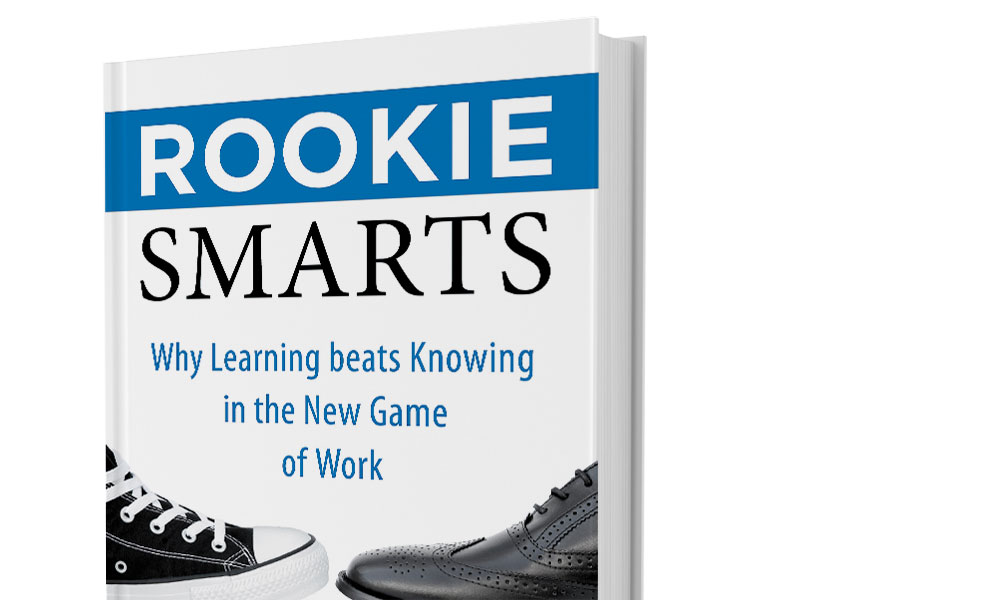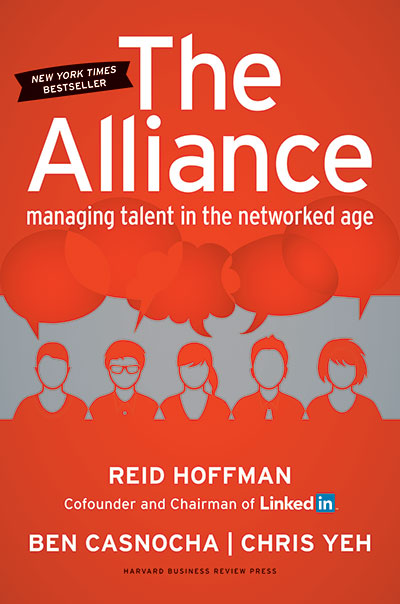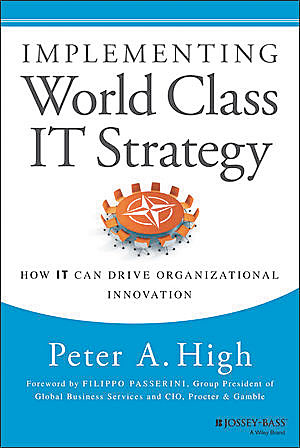
Books: Learning Beats Knowing
It’s often said that experience matters most. But there’s a lot to be learned from newbies, according to Liz Wiseman.
Rookie Smarts: Why Learning Beats Knowing in the New Game of Work
By Liz Wiseman; Harper Business; $28.99; 304 pages
leadership guru Liz Wiseman earned real street cred with her bestselling book, Multipliers: How the Best Leaders Make Everyone Smarter. In her latest research, the former Oracle exec hacks down more hallowed beliefs—this time around the virtues of experience—in Rookie Smarts: Why Learning Beats Knowing in the New Game of Work. Calling experience a “curse” at times, she cites studies and stories showing that veterans are prone to blind spots, groupthink, helplessness, and habit.
Before you rebel, Wiseman is not anti-experience. She just wants veterans to tap newbies better and to revisit “rookie smarts” themselves. Beginners are often undervalued for their knowledge and ideas, but “there is something truly valuable and different in how rookies think and work to make up for knowledge and skill gaps—a mindset and a way of behaving that more experienced workers might do well to learn,” Wiseman writes.
To help veterans recharge beginner behaviors, Wiseman’s team parses its data into four rookie types worth mimicking: backpacker, hunter-gatherer, firewalker, and pioneer.
Backpackers explore changing environments, while experienced professionals often “caretake” the status quo. Disoriented hunter-gatherers “marshall a network of experts, garnering five times the expertise” to find solutions. Firewalkers act fast but carefully, seeking feedback and agility. Pioneers improvise, are resourceful, and focus on “meeting core needs.” Good tips for integrating rookies and embracing cluelessness.

The Alliance: Managing Talent in the Networked Age
By Reid Hoffman, Ben Casnocha, and Chris Yeh; Harvard Business Review; $25; 193 pages
as cofounder of LinkedIn, Reid Hoffman continues to disrupt the business world with his quest to change the way professional relationships develop. Here, he takes on human resources departments by urging them to transform how managers hire, nurture, and inevitably separate from their employees. Using an “alliance-building” framework of three defined “tours of duty,” the authors show how these generally two- to four-year employment stints—common throughout academia and Silicon Valley—can even apply to nonprofits. Special emphasis is given to the organizational and personal ROI of long-term relationship-building, especially via staff alumni networks, of which LinkedIn hosts 118,000. A well-presented concept with huge potential for associations.

Implementing World Class IT Strategy: How IT Can Drive Organizational Innovation
By Peter High; Jossey-Bass; $40; 240 pages
you may recognize Peter High from his Technovation column in Forbes and other knowledge outlets, but this tech strategist still has more to say in his latest book. As president of an advisory firm to chief information officers, High shares macro and micro perspectives of the fluctuating landscape that challenges CIOs today. Condemning “strategic laziness,” he urges CIOs to move past IT management alone and instead “drive strategy in a meaningful way” throughout organizations, from facilitating outsourcing decisions to demanding that departments follow a common strategic format. Especially interesting is High’s “enterprise architecture” chapter, articulating the four-facet “glue” between business goals and IT strategy. Definitely not skimmable, but chapter takeaway lists help boost recall.
(Handout photo)






Comments